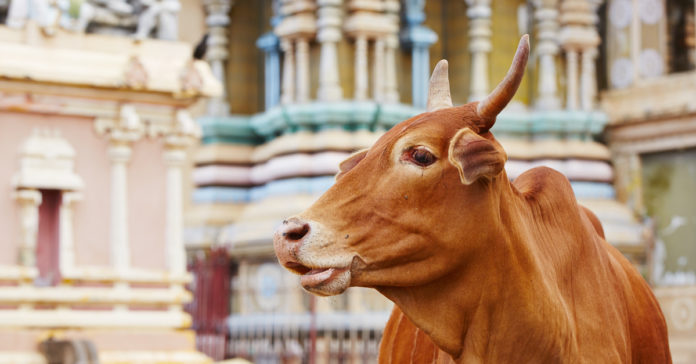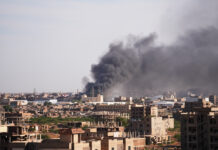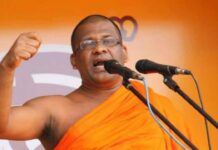Sri Lanka has announced that it will ban cattle slaughter, in a move that’s being seen as politically-motivated to please the Buddhist majority and harm the Muslim minority.
It’s thought the ban will particularly target Muslim traders who have a monopoly on the beef trade.
Mujibur Rahman, a Muslim MP, said that Prime Minister Mahinda Rajapaksa’s ban isn’t about following the precepts of Buddhism. “If they are following Lord Buddha’s policy, then they must ban slaughter of all animals and not only cattle,” he said. “So, this is not about Lord Buddha’s policy. Instead, this is Mahinda Rajapaksa’s policy.”
Rahman accused Rajapaksa and his brother Gotabaya (the President) of creating “unnecessary issues and resorting to being communal,” and warned that the policy would directly and indirectly throw many thousands connected to the trade out of work and decimate their income.
And Hilmy Ahmed, vice president of the Muslim Council of Sri Lanka, said the ban will end up increasing the cattle population with herds roaming across many parts of the country.
“An aged cow or bull fetches approximately 35,000 Sri Lankan rupees ($189),” he said, “and most farmers sell at least 20 to 30 cattle a month. But, if the law is passed, they will have no choice but to let these bulls roam the streets. This can be disastrous and will impact the income of farmers.”
According to the Department of Animal Production and Health, Sri Lanka’s cattle population in 2019 was over 1.5 million. It also had 472,000 buffalo. The country produced over 29,000 tons of beef that year, up 1,000 tons from 2018.
Subscribe to our newsletter and stay updated on the latest news and updates from around the Muslim world!
On the other hand, the government says the ban will help the dairy industry and thereby save money used to purchase imported milk powder.
The Cabinet said that an increase in cattle slaughter was making it hard for traditional farmers to acquire cows for dairy farming. It said it would implement a suitable program for ageing cattle that can no longer be used effectively for agricultural purposes, but didn’t describe the program.
It added that the government will import beef and provide it at a concessionary price to people who consume it since it will not be produced domestically.
Buddhists as well as minority Hindus in Sri Lanka avoid beef for religious and cultural reasons. Some Buddhist monks and allied groups have long sought a ban on cattle slaughter.
Buddhists account for more than 70% of the country’s 20 million people. Ethnic minority Tamils, who are mainly Hindus, comprise about 15% of the population, while 9% are Muslims.
Communal tensions between Buddhists and Muslims have been on the rise since the end of Sri Lanka’s civil war over a decade ago.
The Rajapaksas, who have ruled Sri Lanka on and off since 2005, have been accused of pandering to the nation’s Buddhist nationalists who have incited against Muslims.
Tensions between Muslims and Buddhists increased in Easter 2019 after local “jihadists” were accused of suicide bombings at three hotels and three churches that killed 279 people.
Weeks later, Sinhalese mobs attacked Muslims, killing one and wounded dozens more. Hundreds of homes and vehicles were destroyed and the authorities were accused of failing to stop the violence – a charge denied by Colombo.




















